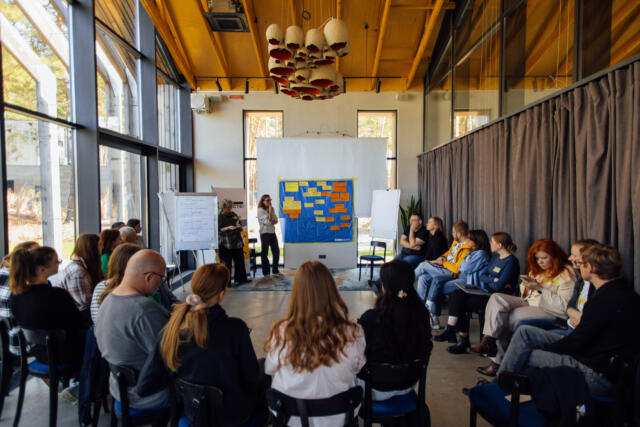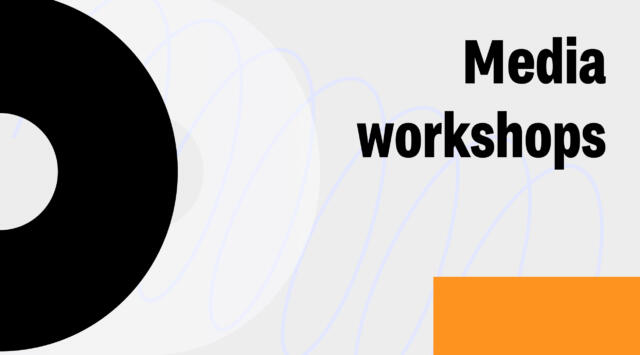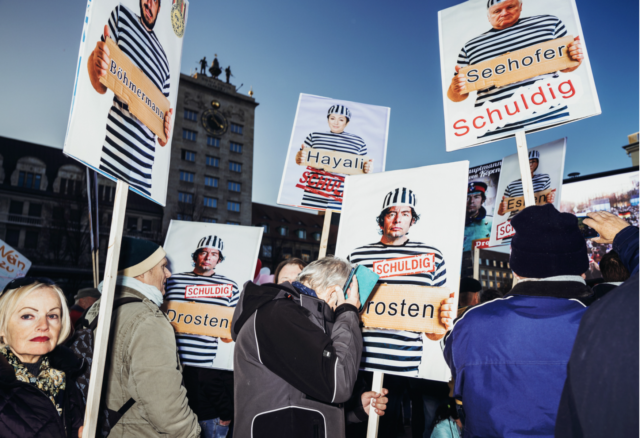Over three days, participants explored:
Russian disinformation campaigns in the context of the invasion of Ukraine
AI and OSINT tools for monitoring manipulation
The role of social media platforms in the spread of disinformation
Legislative responses in Western countries
Practical workshops on multimedia journalism, verification, and fact-checking tools
Speakers and trainers included experts from Ukraine, Georgia, Germany, and Poland, offering insights based on local and international experiences.
Highlights from Core Workshops
1. Nika Mamuladze (GRASS, Georgia):
Presented how Facebook’s Third-Party Fact-Checking (3PFC) program works, with examples of how GRASS flags disinformation related to the war in Ukraine. GRASS submitted thousands of ratings that led to the demotion of manipulated narratives about “denazification,” “genocide,” and false accusations against Ukrainian leadership.
2. Yuliia Dukach (Texty.org.ua, Ukraine):
Demonstrated large-scale automated disinformation tracking through classifiers and dashboards that process news from over 1000 websites. She also introduced techniques to analyze propaganda spread via Telegram and visual meme clustering.
The workshop clearly demonstrated that media literacy and a deeper understanding of the information space are not optional—they are essential. In an era where digital platforms shape public opinion and hostile actors weaponize narratives, equipping journalists and media professionals with the tools to identify, analyze, and counter disinformation is vital. By examining both global trends and local practices, and by understanding platforms like Facebook’s response mechanisms, participants left better prepared to defend democratic values and contribute to the informational security of their societies.








